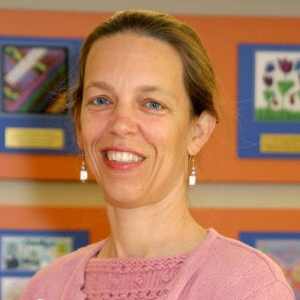 My heart goes out to the people of Japan. The terrible destruction of home and entire towns, the unspeakable terror of nuclear catastrophe, but above all the horriffic loss of family members, extended family, friends, coworkers, neighbors, neighborhoods, and entire communities.
My heart goes out to the people of Japan. The terrible destruction of home and entire towns, the unspeakable terror of nuclear catastrophe, but above all the horriffic loss of family members, extended family, friends, coworkers, neighbors, neighborhoods, and entire communities.
We are all Japan.
In this media-connected world, most of us have witnessed — via video — the homes being torn from their roots, people being swept away. Here in my native Los Angeles, the crisis was driven home by comparisons of the New Zealand and Japanese earthquake faults to our own situation, and counts of how many California buildings are not up to structural codes.
I pass through tsunami hazard zones weekly as I take my son to boy scouts. The bright blue and white signs burn into my mind. One of our Transition initiatives is located within that zone. It was absolutely chilling to see the resituals of the tsunami ripples from 5,000 miles away course up our own Ballona Creek, not a mile from my home, a creek I’ve fought for, that now runs through a housing development which should never have been built. Footage of ground movement and water seepage in a Tokyo park built over filled wetlands drove the message home: There but for the Grace go we.
We are all Japan. The earth’s axis shifted 6.5 inches and each day is now 1.8 microseconds shorter. On an energetic level — acknowledged only by the wisdom of “alternative” medicine — we all felt that. Our psyches know. It was a quake felt round the world, literally.
We are all Japan. This morning’s paper announces that radiation will reach Southern California by Friday. But that doesn’t mean it will stop here. In traveling 5,000 miles, it will dissipate, which means that any significant nuclear release will quickly wrap the globe. There is no place to hide. We are all affected, and we are all grappling with it emotionally.
This is a test. This is only a test.
The Japanese earthquake is a test of our inner resilience. Meanwhile oil prices are climbing and the economy is stumbling yet again (or still). This is only a test of what is yet to come.
How did you process it? Did you bravely shoulder the images, and try to carry on with business as usual? Did you notice the emotional repercussions? Are you edgy, more likely to flare up at other people or at trifles? Were you suddenly forgetting things, or finding yourself less able to cope with the usual stressors of your particular life?
I found myself raw emotionally, with echoes of previous life tragedies bubbling to the surface. I reached out to my resources — a homeopathic practitioner, a long-favorite book on the Buddhist concept of impermanence, a new-to-me book on meditation, quiet time in my garden, taking a slower pace for a bit.
This crisis — which only began in Japan — reminds all of us to take stock. What resources did you reach out to? What inner resources do you have? Who can you talk with about the anguish of huge change? What coping mechanisms do you have? What is your personal support network like? Is it stong enough to support you to emotional resilience? Or do you need to bring more inner Transition resources into your portfolio?
We are all Japan. Each of our local communities has its own looming disaster: hurricane, tornado, blizzard, drought, wildfire. These are only the “short emergencies.” The Long Emergency (of peak oil, climate change, economic contraction) also looms over all of us. Seek to generate what Chris Johnstone calls “Inspirational Dissatisfaction,” where the feelings generated by the Japanese earthquake motivate you to make changes in your life.
May Japan’s physical pain and heartbreak be the stimulus that gets us all to check our emotional preparedness kit and do what we need to fortify it. Today, take a moment to nurture yourself and to nurture someone near you.
- The Elm Dance – Joanna Macy’s healing project for the people affected by Chernobyl, and the Nuclear Guardianship of her website. Macy’s page on Fukushima.
- The Quiet: Four Simple Steps to Finding Peace and Contentment, by Paul Wilson. “The four steps of the Quiet approach produce all the short- to medium-term benefits of traditional meditation, but in an easier and more understandable way.”
- The World We Have: A Buddhist Approach to Peace and Ecology, by Thich Nhat Hanh. Examines the Buddhist concept of impermanence within the context of climate change and global warming.






